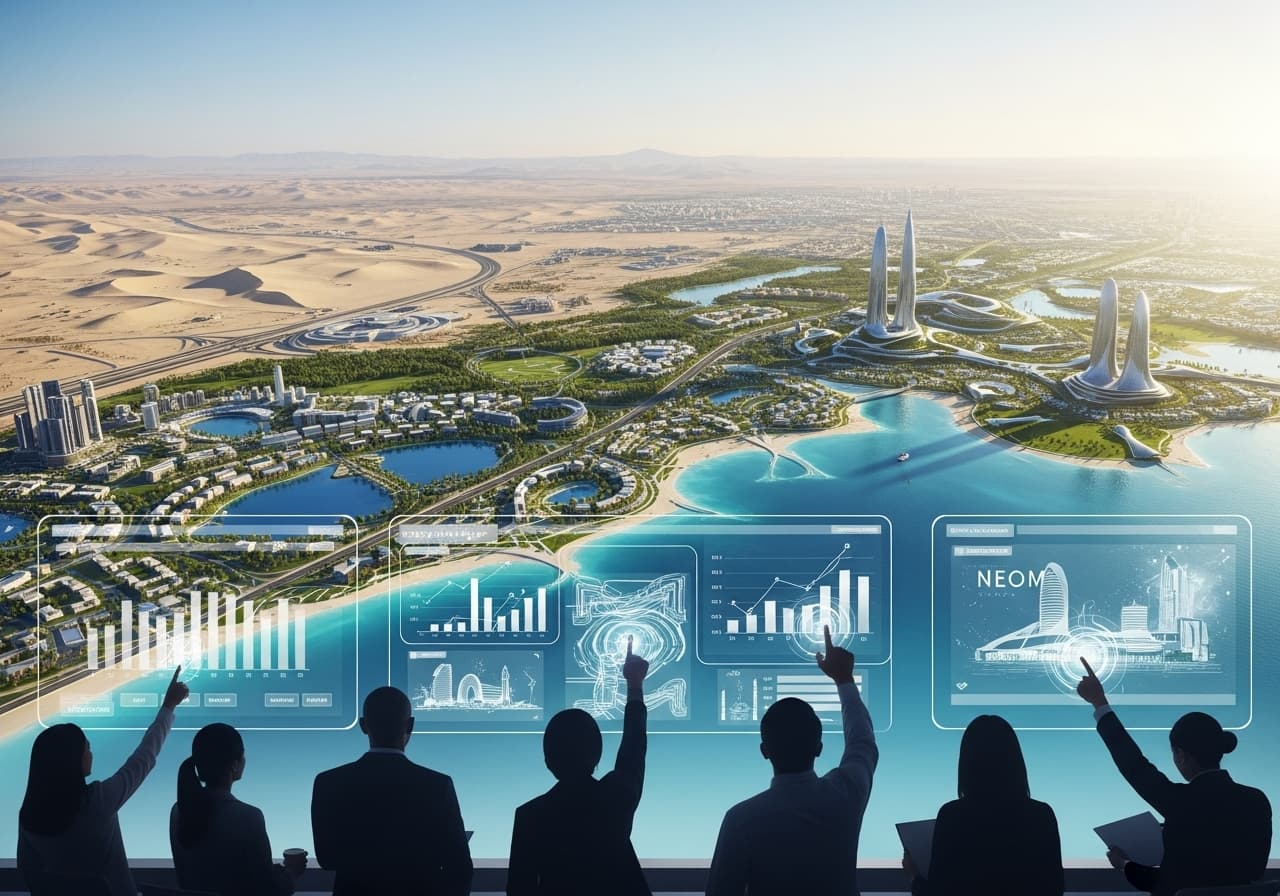For anyone investing in Middle East real estate, Dubai has always been the obvious choice. For decades, it was the only real game in town. That’s all about to change.
A huge shift is coming as Saudi Arabia gets ready to open its massive property market to the world. This move is set to completely redraw the region's economic map.
Starting in January 2026, a new law will let non-Saudis own property almost anywhere in the Kingdom. This is a direct, bold challenge to established hubs like Dubai. This isn't just a policy update. It's a core part of Vision 2030, the country's ambitious plan to move its economy beyond oil.
With Saudi Arabia already making headlines with giga-projects like NEOM, The Red Sea Project, and Qiddiya, this law adds another powerful reason for global investors to pay close attention.
A New Playing Field
The new rules, managed by the Real Estate General Authority (REGA), lay out a clear path for foreign buyers. The law is surprisingly open and applies to a wide range of people and organizations.
Who gets to buy?
- Any non-Saudi with legal residency in the Kingdom.
- International companies and licensed businesses.
- Non-profits and charitable groups.
- Foreign diplomatic missions, based on mutual agreements.
REGA will soon release the exact details on which areas are open and what paperwork is needed. The goals are clear: pull in real estate investment, increase the housing supply for a growing population, and create a lot of new jobs.
The Price of Entry: Fees, Fines, and Holy Ground
While the opportunity is massive, investors need to be prepared for some strict rules and serious costs. This is not a market you can just jump into unprepared.
First, there's the entry cost. Foreign buyers are looking at a combined 10% fee and tax on any property they buy. That number is a critical one for investors comparing their options across the Gulf.
Second, breaking the rules comes with heavy consequences. Violating the ownership law can lead to fines up to SR 10 million (about $2.67 million). Even worse, any property bought using false or misleading information will be seized and sold at a public auction. The government keeps the money.
Most importantly, the law is built on a deep respect for the Kingdom's heritage. The holy cities of Mecca and Medina have strict protections. In certain zones within these cities, only Muslims and Saudi-owned companies can own property. Foreign investors must understand and respect this line.
Saudi Growth vs. Dubai's Stability
The big question for any investor is simple: how does this new market stack up against Dubai? The 10% entry cost in Saudi Arabia is quite a bit higher than Dubai's standard 4% transfer fee from the Dubai Land Department (DLD).
But Saudi Arabia isn't competing on fees. It's betting on something different: massive scale, rapid growth, and a ground-floor ticket to an economy that's transforming before our eyes. Dubai offers a mature, predictable market. Saudi Arabia offers the thrill of explosive growth tied to a national vision.
Analysts expect a flood of interest in luxury homes, commercial spaces for new industries, and logistics centers needed to support the Kingdom's mega-projects.
As one expert from 'Gulf Capital Analytics' put it, "This is a major turning point. Saudi Arabia is now a serious player for the kind of money that, until now, would have gone straight to Dubai without a second thought."
As 2026 gets closer, the world is watching. Saudi Arabia has thrown down the gauntlet. For investors, the choice is no longer simple. The Kingdom presents a chance to get in on a historic boom, but it demands you know the rules. Dubai’s reign isn't over, but it definitely has a real competitor now.


